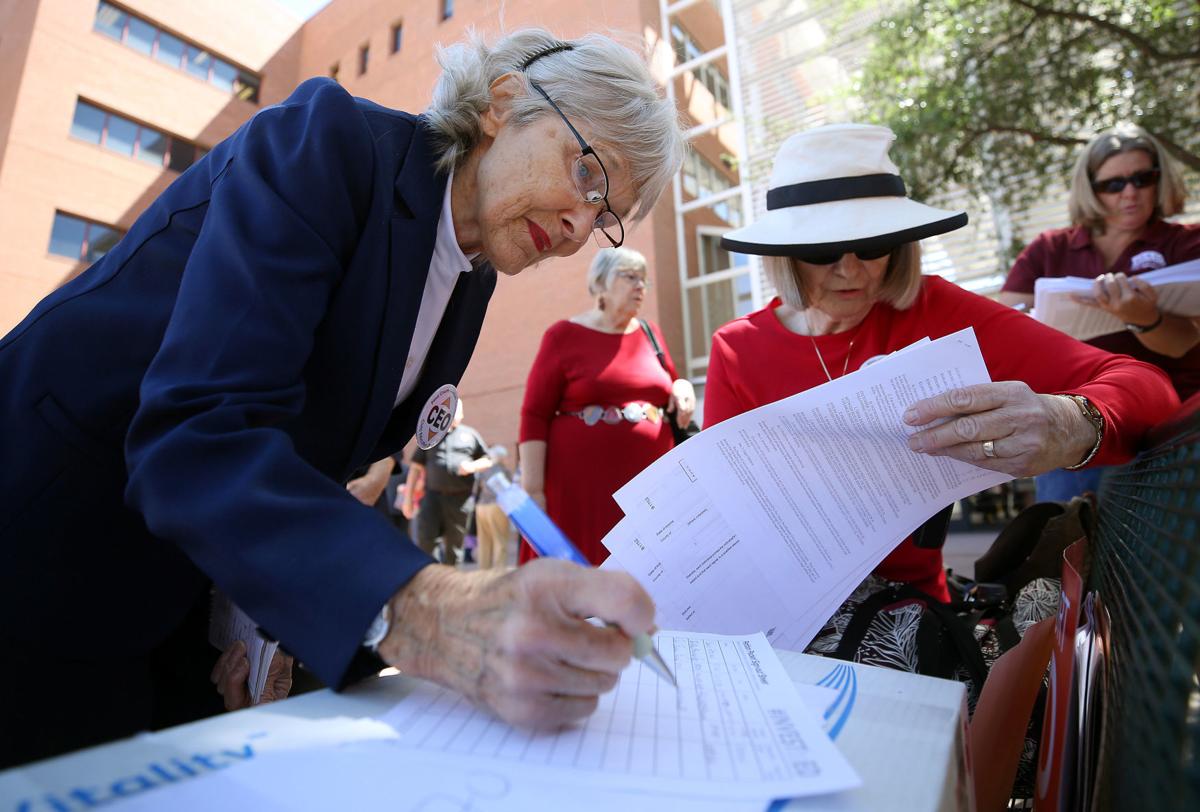It seems a bit out of Alice in Wonderland, where yes and no are topsy-turvy.
But the more than 100,000 people who signed petitions to put Proposition 305 on the ballot now find they have to vote against it to get what they want: repealing legislation to expand who can get vouchers of taxpayer funds to attend private and parochial schools.
Arizona voters appear deeply confused by Prop. 305’s ballot language, and that confusion could influence the outcome in November, The Arizona Republic reported, based on a new poll the newspaper conducted with Suffolk University.
The situation arises because of the unusual way the measure got on the ballot in the first place: People unhappy with the Arizona Legislature put it there.
Measures usually get on the ballot one of two ways. The first, and most frequent, is a group gets together and proposes a change in state law or the Arizona Constitution. If it gets enough signatures, the issue goes to voters.
What also can happen is that state lawmakers can put a question to voters.
But Proposition 305 is different. It seeks to overturn something already approved by the Legislature.
The issue is vouchers — state funds that can be used by parents to send their children to private and parochial schools.
Until 2017, the vouchers, formally known as “empowerment scholarship accounts” or ESAs, were restricted to those with special needs. These ranged from children with learning disabilities to foster children, children living on reservations and those attending public schools rated D or F. About 3,500 students out of 1.1 million in public schools now get such aid.
Last year, lawmakers voted to remove all restrictions on who can qualify for vouchers, but to limit the total number of vouchers to no more than 30,000 by 2022.
The Arizona Constitution allows any group dissatisfied with any legislative measure to gather signatures and refer it to voters. That’s what happened here.
So, the Legislature’s voucher expansion plan is in legal limbo until at least Nov. 6.
That’s where it gets tricky.
A “yes” vote on Prop. 305 opposes the goal of the referendum drive, ratifies the 2017 law and allows the voucher expansion law to take effect.
A “no” vote is to reject the voucher legislation and to support the referendum drive.
Support of the expanded vouchers comes largely from several groups that back the use of public dollars for private and religious education, including the Arizona Catholic Conference whose dioceses run schools, and the Center for Arizona Policy.
The Goldwater Institute also is in support, based on its backing of the concept of “school choice.”
But to date, its side has yet to come up with an extensive campaign. In fact, its #YesForEd Committee, as of the most recent campaign finance report, had spent less than $150.
By contrast, Save Our Schools Arizona — the campaign group opposed to expanded vouchers, which includes teachers and parents who support funding for traditional public schools — listed $311,000 in expenses.
While the whole Save Our Schools campaign started out to be about vouchers, it morphed into much more.
Concerns about inadequate funding of K-12 schools merged with anger about lawmakers putting additional dollars into private and parochial schools. And the referendum drive eventually gave birth to the #RedForEd movement that led to the state’s longest-ever teachers’ strike last spring.





